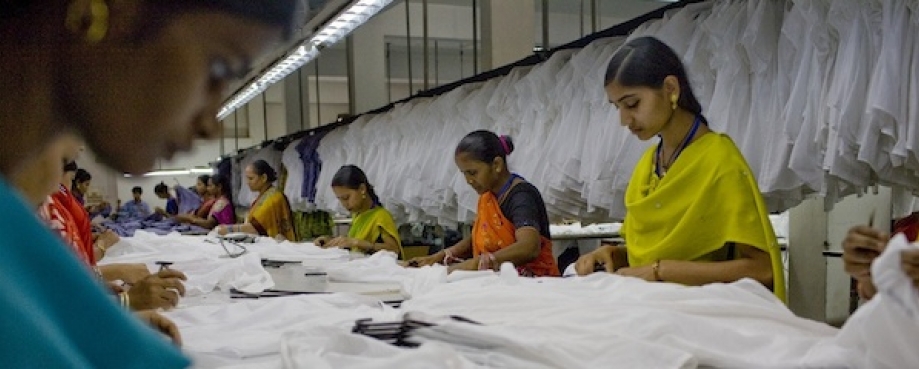
For the past three years, I've been preoccupied with the question of how to achieve safe migration into decent jobs for poor women. My answer? Collaboration and clarity about who and what enables or blocks change.
Before joining ETI, I led the design and development of a £10.5m programme called Work in Freedom. It's an ambitious and exciting collaboration between the UK’s Department for International Development (DFID), the International Labour Organisation (ILO) and the London School of Hygiene & Tropical Medicine (LSHTM) that aims to prevent trafficking of 100,000 women and girls from South Asia, and to support them to migrate safely into decent jobs in the Middle East or within the region. It focuses on the garment sector and domestic work since these are the sectors that involve most migrant women workers.
It's a partnership of governments, recruitment companies, employers, trade unions, large and small NGOs - in labour sending and host countries. The idea is to take a whole labour migration supply chain approach, and to interrupt the critical points of vulnerability to trafficking along the way, and create a virtuous cycle of change. It relies on a wide range of stakeholders working together to create win-win solutions.
Trafficking and forced labour is not all about bad guys and good guys (although clearly there are many bad guys involved). It's complex and it's growing. The ILO estimates that in 2012 there were just under 21 million people in forced labour. 11 million are in Asia. 55% of them are women.
There have been millions of dollars spent on anti-trafficking efforts. Some have focused on identifying, prosecuting and punishing criminal traffickers; some on community-based interventions to warn people about the risks of trafficking; some on changing laws and policies; some on exposing trafficking and child labour in global supply chains. But none of these efforts alone have stopped this problem. Little has been done on recruitment and debt bondage and not enough has been done to change attitudes and behaviour of the employers of migrant workers.
The point is, all these factors are important and must be tackled together. It's obvious if we look at the problem through the eyes of a migrant woman worker and her experience.
Many women that migrate for work come from the poorest communities, living in remote rural areas. Many have not had the opportunity of an education. They come from areas where job opportunities are scarce. They have very low status in their families and communities because they are women.
One in three women is likely to have experienced sexual or other violence. They migrate for work so they can earn money to send home to their families, but often have little awareness of where they are going or what work they'll be doing. Their families will raise huge amounts of money, often mortgaging their land, to pay a recruitment agent to get them a job. They are often deceived about the pay they will get, the type of job they'll be doing. Many are aware they are taking risks but feel they have no choice. And to compound the problem, there is to date no robust evidence about what works. That's where the partnership with LSHTM comes in (in a later blog I'll talk much more about this). When labour migration goes well for women, the benefits are huge. Women with an independent income have more voice, choice and control over their own lives. They are more likely to marry later in life, educate their children, and their families are likely to be healthier. They are more valued and respected. Their contribution to a country's economic growth is considerable - Bangladesh is a prime example.
As I've now joined ETI, I'm more convinced than ever that ethical trade, women's empowerment and forced labour are complex and require multi-stakeholder initiatives to tackle them effectively and for the long term. Happy International Women's Day!
Cindy Berman, Head of Knowledge and Learning
